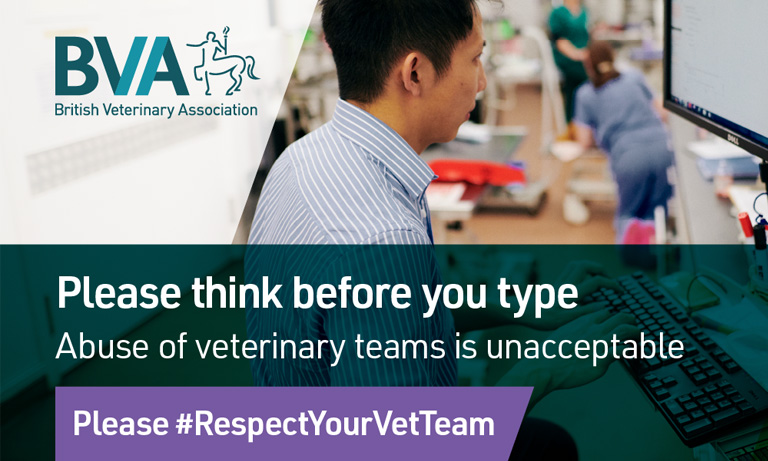Standing up for the veterinary profession
08 Aug 2024
18 Jan 2023 | Abbie Wilson
Abbie Wilson, Lead Client Care Assistant at Cherrydown Vets and Council Member at the British Veterinary Receptionist Association, shares what actions practices can take to address unfair customer complaints on social media.

It can be difficult for a vet practice to receive an unfavourable review about their work, although it can sometimes lead to a positive change. Whilst these types of reviews and comments cause upset and extreme frustration to staff, the posts that affect staff the most are when a client attends the practice and leaves seemingly happy and thankful, only to then make negative comments online that could have been dealt with whilst they were at the practice. This can leave staff feeling deflated and hurt, especially when they have worked tirelessly to assist a client and their pet, then see unkind comments on social media that can very easily be taken personally. A lot of the team take this home with them because they are so passionate about what they do.
To try and resolve this situation in our practice, we raised the matter of any such incidents directly with the managers who could address clients' concerns directly with them. If the client in question attended the practice regularly, and generally had a good relationship with the vet, that vet or the clinical director would follow it up with a phone call to the client to try and resolve the situation swiftly.
At our practice we refrain from responding to the comments online, unless it is to ask the person who made the post to contact the practice directly to address their concerns. This is to avoid drawing more attention to the post and also it gives the practice the opportunity to discuss and work through the clients concerns privately. The practice marketing department (if the reviews were made via a source that can be controlled i.e. the practice Facebook page) may remove or hide a post that contains false information or profanities.
Occasionally, some of the complaints we receive are completely unfounded but if the complainant doesn’t get the response they wanted or if the situation is not resolved, unfortunately they may threaten or air their complaint about the practice on local social media pages where we have no right to reply and responding via our personal social media accounts could exacerbate the situation further.
Unfortunately, one particularly bad experience made our team scrutinize everything relating to the alleged incident, which in turn made the team doubt themselves and wonder what they could have done differently. But sometimes the reality is that there just isn’t anything that can be done differently, as some people will be impossible to please as they do not want to find a solution or the solution they are seeking is just not possible.
If we have a negative comment or situation arising on social media, as a team we will discuss it to see if there is anything we can do to avoid another similar situation occurring in the future and put protocols in place if necessary.
The only thing that could be done differently to potentially improve the outcome of a negative review or comments on social media would be to give clearer communication to the client explaining everything in as much detail as possible. Sadly, in busy practice there is not always the time or staff to do this, and even if there were, it is not always likely to alter the outcome or make the client less dissatisfied. However, it would give the staff and practice peace of mind that they have done everything they could.
It is hard not to take comments personally or to heart and it is always good to discuss with your team about how you are feeling. Know what actions can be taken so that a situation can be addressed quickly and nipped in the bud before snowballing.

Abbie Wilson (above), Lead Client Care Assistant at Cherrydown Vets and Council Member at British Veterinary Receptionist Association.
The guide How to manage unfair and abusive reviews online was developed for BVA members after Voice of the Veterinary Profession statistics revealed 1 in 2 vets working in clinical practice had recently experienced online abuse, with unfair reviews the most common type reported. The new guide, developed in association with VetsDigital, is the latest addition to BVA’s ‘Respect your vet team – end abuse’ campaign, which aims to support vets and veterinary workplaces who experience abuse from animal owners either in person or online, in the form of harassment, trolling and unfair reviews.
It will be added to the Respect Your Vet Team toolkit, which offers a range of resources to support Team Vet in protecting staff and limiting the frequency and impact of abuse from clients. These include practical tips on how to protect veterinary staff from online abuse, downloadable posters and graphics encouraging respectful behaviour from clients and a series of blogs exploring these issues.
#RespectYourVetTeam
Get tailored news in your inbox and online, plus access to our journals, resources and support services, join the BVA.
Join Us Today